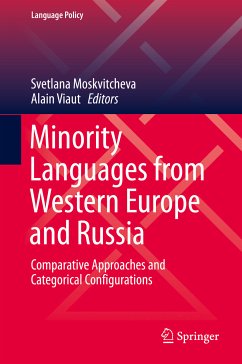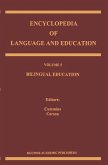The volume features multidisciplinary approaches, first linguistic (sociolinguistic and semantic) and legal, and investigates the limits of country-to-country comparisons, mirroring cases from France, Spain, and China with their counterparts from Soviet and later Russian configurations. Special examples, from a region as Ingria and a country as Tajikistan, help to contextualize this approach. In addition, the notion of migration languages, also minority languages, is studied in bilingual contexts, both from external (German, Greek, Chinese ...) and internal origins (Chuvash), linked to the urbanization in contemporary societies that has fostered the presence of these languages in major cities.
Dieser Download kann aus rechtlichen Gründen nur mit Rechnungsadresse in A, B, BG, CY, CZ, D, DK, EW, E, FIN, F, GR, HR, H, IRL, I, LT, L, LR, M, NL, PL, P, R, S, SLO, SK ausgeliefert werden.









